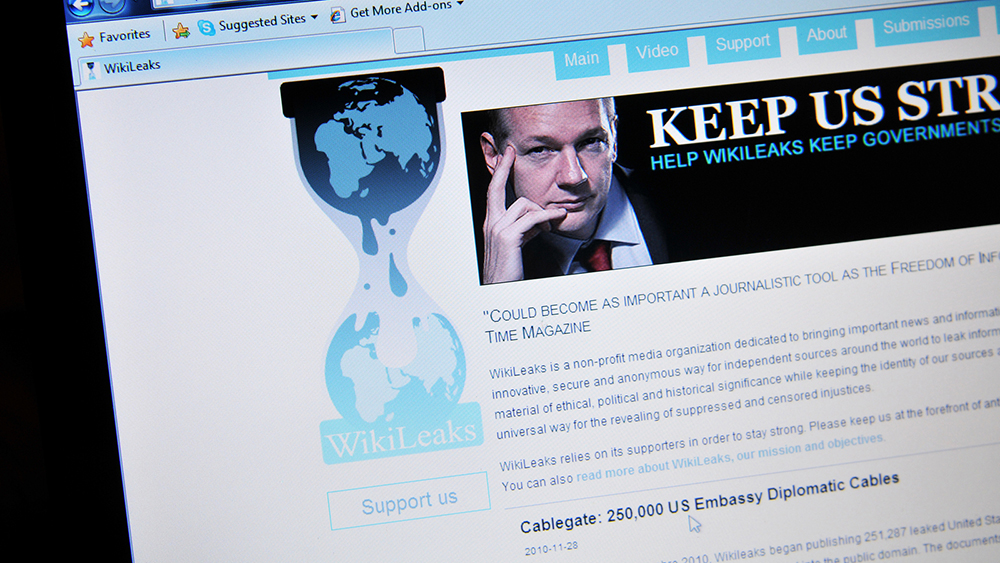DataCell launches legal action against Visa and MasterCard
The credit card giants have no longer just got distributed denial of service attacks from WikiLeaks supporters to contend with.


The company which facilitates payments to WikiLeaks is taking on the big guns of the credit card industry in an attempt to open up payment processes once more.
DataCell has announced it will be taking "immediate legal actions" against Visa and MasterCard, who have both this week suspended processing donations to the whistle-blowing website.
The company claimed it was loosing revenue due to the payment suspension, as well as WikiLeaks losing donations.
"DataCell is only doing work for Wikileaks in helping them processing credit card payments," said Andreas Fink, chief executive (CEO) of DataCell. "We are helping an honourable organisation to get its funding it needs to sustain the load on their servers and deliver the messages the public wants to read."
He claimed the blocking of payments by Visa and MasterCard could severely damage the two companies' reputations and make them lose customers.
"This might be very well the end of the credit card business worldwide," he added.
The legal action is just the latest issue faced by the companies who have become targets of WikiLeaks supporters.
Get the ITPro daily newsletter
Sign up today and you will receive a free copy of our Future Focus 2025 report - the leading guidance on AI, cybersecurity and other IT challenges as per 700+ senior executives
A hacker group calling themselves Anonymous' targeted MasterCard's website yesterday with a distributed denial of service (DDoS) attacks and successfully took the site down. Reports suggest Visa's website could be the next target.
WikiLeaks is responsible for leaking the contents of confidential US Embassy cable communications to a number of newspapers around the world, including The Guardian in the UK.
Founder of the website, Julian Assange, was this week arrested in London after he was accused of committing sexual assault in Sweden back in August. The Australian has been refused bail and is waiting to fight against an extradition order to send him back to Sweden.
Jennifer Scott is a former freelance journalist and currently political reporter for Sky News. She has a varied writing history, having started her career at Dennis Publishing, working in various roles across its business technology titles, including ITPro. Jennifer has specialised in a number of areas over the years and has produced a wealth of content for ITPro, focusing largely on data storage, networking, cloud computing, and telecommunications.
Most recently Jennifer has turned her skills to the political sphere and broadcast journalism, where she has worked for the BBC as a political reporter, before moving to Sky News.
-
 Wikileaks 'hacked' by OurMine
Wikileaks 'hacked' by OurMineNews The whistleblowing site was supposedly breached, but the attack was found to be a simple DNS spoof
By Adam Shepherd
-
 Sweden drops rape charges against Julian Assange
Sweden drops rape charges against Julian AssangeNews Assange may still remain in hiding, however
By Nicole Kobie
-
 Cisco discloses Vault 7 vulnerabilities
Cisco discloses Vault 7 vulnerabilitiesNews Internal analysis seems to have identified bug revealed by WikiLeaks
By Jane McCallion
-
 Apple iOS 10.2.1 protects users from Weeping Angel
Apple iOS 10.2.1 protects users from Weeping AngelAnalysis Security community says Vault 7 content is "no surprise", but reckless
By Jane McCallion
-
 WikiLeaks ‘exposes people’s personal data’ in leaked files
WikiLeaks ‘exposes people’s personal data’ in leaked filesNews Rape victims and other innocent people named in WikiLeaks documents, says AP
By Joe Curtis
-
 Mastercard scraps passwords in online security drive
Mastercard scraps passwords in online security driveNews Visa will also work with Mastercard to roll out an innovative way of securing online payments
By Clare Hopping
-
 Pressure mounts on US justice department to drop Wikileaks investigation
Pressure mounts on US justice department to drop Wikileaks investigationNews Human rights organisations claim investigation could put all journalists at risk of prosecution
By Caroline Donnelly
-
 Julian Assange unlikely to be charged by US government
Julian Assange unlikely to be charged by US governmentNews No way to prosecute Assange without also taking legal action against journalists.
By Khidr Suleman

